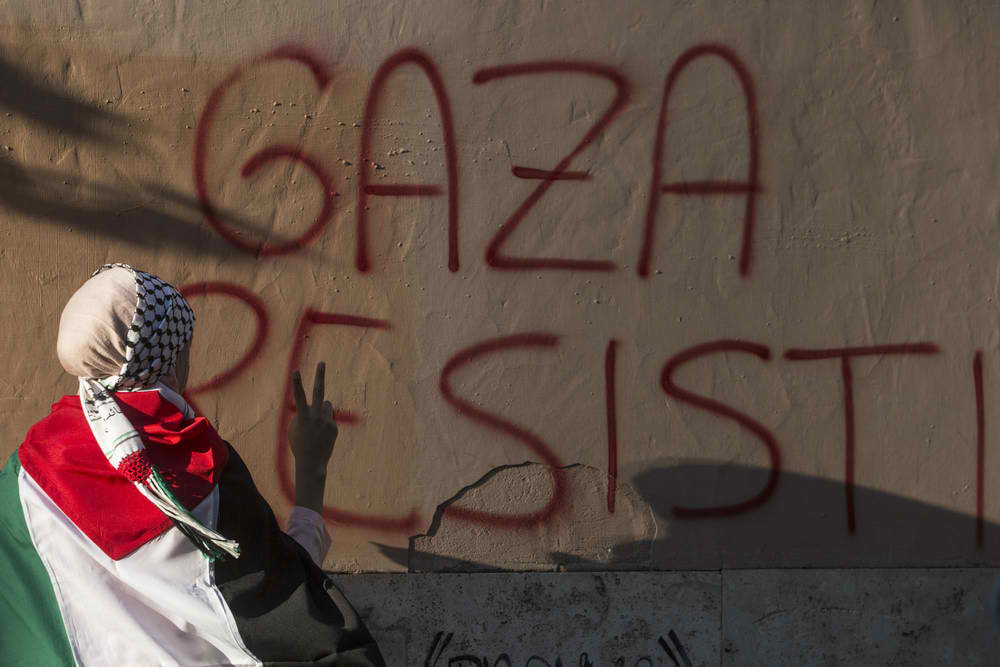
CAIRO — Israeli and Palestinian negotiators in Egypt-mediated Gaza truce talks hardened their positions Monday ahead of the expiration of a five-day cease-fire, though both sides appeared reluctant to return to the deadly all-out fighting that has destroyed large parts of the densely-populated coastal strip.
The month-long Israel-Hamas war has killed more than 1,900 Palestinians, the majority of them civilians, according to Palestinian and U.N. officials. Israel has lost 67 people, all but three of them soldiers.
Since last week, indirect talks have been taking place in Cairo through Egyptian mediators in an effort to broker a substantive end to the war and draw up a roadmap for Gaza.
On Sunday, Palestinian and Israeli delegations resumed the talks following weekend consultations across the Middle East but gaps between the two sides remain wide, with each staking out maximalist positions.
The Gaza blockade, imposed by Israel and Egypt since the Hamas militants took control of the strip in 2007, remains the main stumbling block. It has greatly limited the movement of Palestinians in and out of the territory of 1.8 million people, restricted the flow of goods into Gaza and blocked virtually all exports.
A Palestinian negotiator, Qais Abdul Karim, told The Associated Press that on Sunday, Israel pressed for guarantees that Hamas and other militant factions in Gaza would be disarmed, while the Palestinians demanded an end to the blockade without preconditions.
The current five-day cease-fire ends at midnight (2100 GMT) Monday but Ziad Nakhleh, head of the Islamic Jihad faction within the Palestinian delegation in Cairo, said he expects it to be extended if a deal is not reached by then.
“The war is behind us now,” he told the AP. “We are not returning to war.”
Hamas has repeatedly said it will not give up its weapons, while Israel says it needs to maintain some degree of control over Gaza crossings to prevent the smuggling of weapons and weapons production materials into the coastal strip.
Karim, the Palestinian negotiator, said Egyptian mediators have pressed the Palestinians to present compromise proposals on the border crossing issue. The Palestinian delegation was in a meeting in the early hours Monday over it but the outcome was not immediately known.
In a possible move to pressure Hamas to soften its positions on the blockade and related issues, Norway’s foreign minister said Monday that his country and Egypt are planning to co-host a donor conference in Cairo for the reconstruction of Gaza. Boerge Brende said invitations will be sent out once there is an agreement in the Egypt-mediated truce talks with Israel.
Also on Monday, Israeli troops demolished the homes of two militants suspected in the abduction and killing of three Israeli teenagers whose deaths sparked the war in Gaza, and sealed up the home of a third.
The demolition is standard Israeli military procedure in dealing with militants suspected of major crimes. According to the police, there were 250 policemen at the scene, along with dozens of Israeli soldiers. Minor clashes were reported during the demolition, with Palestinian youths hurling rocks and stones at armored Israeli vehicles.
The three teens – Eyal Yifrah, Gilad Shaar and Naftali Frenkel – were slain in June in the West Bank. Their killings were followed by the slaying of a Palestinian youth in what was a likely revenge attack.
The teens’ deaths also led to wide-ranging Israeli raids in the West Bank and precipitated the Gaza war, which began on July 8 with an Israeli air campaign. Nine days later, Israel sent in ground troops to destroy Hamas’ underground cross-border tunnels constructed for attacks inside Israel.
Enav reported from Jerusalem.